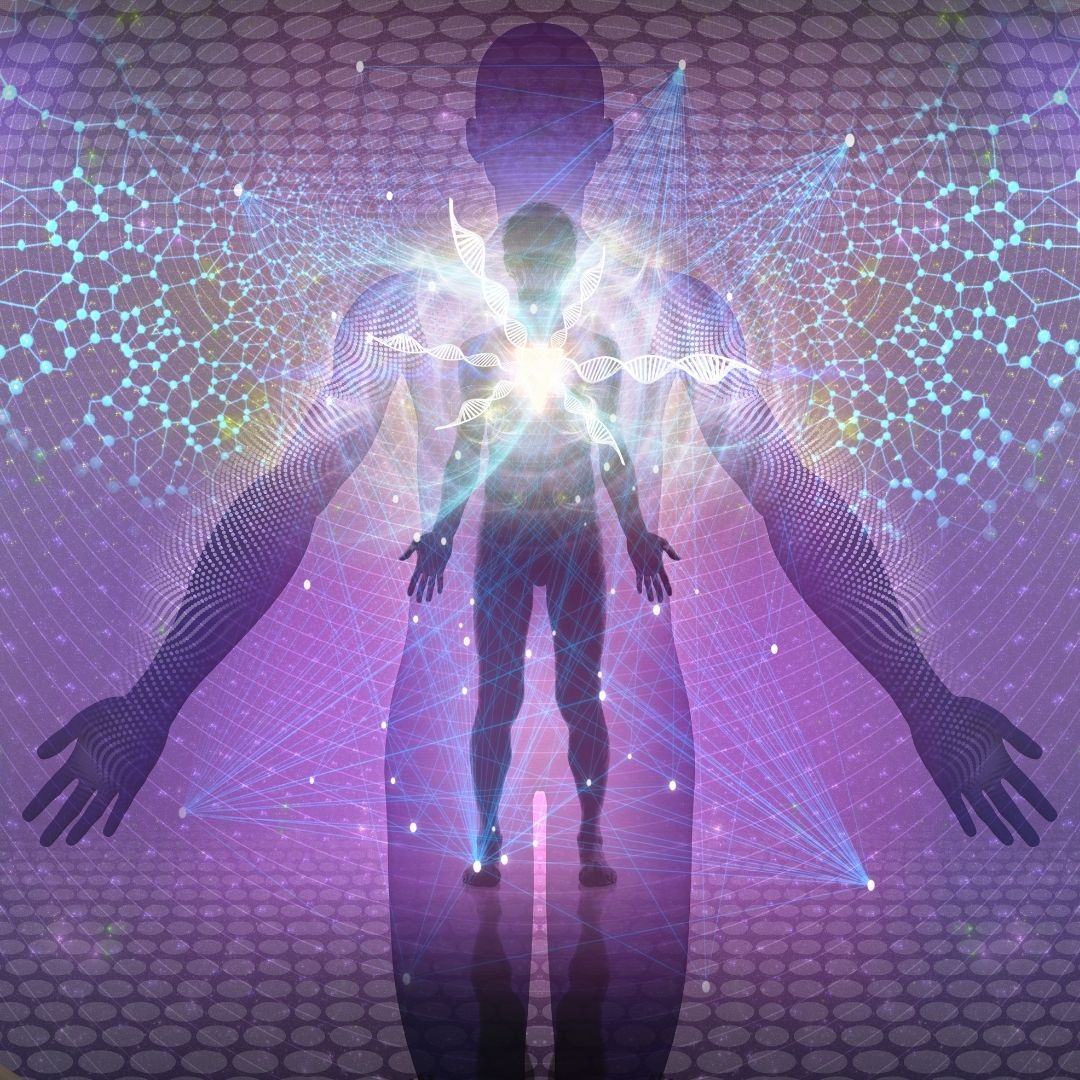Through meditation, the practice of yoga, and selfless service–which means making some higher sacrifice–we start to realize, “I’m complete in myself. What I am is significant… what I have, not so much.” What you are, your spiritual being, is extraordinary superior energy. All the things you have, on the other hand, are inferior material nature.
If the living force is eternal, then what is there to lose? This brings us to the point of realization called ātmā tattva jñāna. Ātmā means “the self,” tattva means “to understand a particular category of energy,” and jñāna means “knowledge.” When I have awareness of the fact that, “I’m not my body. I don’t have to attend to it all the time,” then I can give the balance of my energy to spiritual practice.
I’m not my body, but I do have to tend to the basic needs of the body. A spiritually realized person is directed to take care of his or her health because the body is the instrument through which we practice spiritual life.
In the Bhagavad-gītā (6.17), Kṛṣṇa says “Don’t eat too much, and don’t eat too little. Don’t sleep too much, and don’t sleep too little. Don’t recreate too much, and don’t recreate too little.” Furthermore, the Śrīmad-Bhāgavatam (1.2.10) says:
kāmasya nendriya-prītir
lābho jīveta yāvatā
jīvasya tattva-jijñāsā
nārtho yaś ceha karmabhiḥ
This verse explains that life’s desires shouldn’t be invested in material sense gratification, which just entangles us more in the bodily conception of life. Rather, we should live a healthy life, take what we need to feel vital, and use that energy for inquiring about the Supreme.
In the Bhāgavatam story of Gajendra, the king of the elephants who was attacked by a crocodile while taking a bath, the author mentioned that although an elephant is stronger than a crocodile, the water is a foreign environment for an elephant. Being outside of his natural habitat, Gajendra felt weakened, whereas the crocodile became stronger. The lesson for us? To practice most effectively, we have to balance the spiritual and material aspects of our life. We should stay healthy and vital, keeping ourselves as much as possible in a natural environment where we feel encouraged. When we feel health in body and encouragement of mind, that is a springboard to practice spiritual life with full vigor.
We live in a multi-dimensional universe; we have to live in a practical way. Here’s an example: You go sit down for a job interview. The manager says, “Who are you?” You respond, “I’m a spiritual being. I don’t have a designation.” When they ask, “Where are you from?” You say, “I’m from the spiritual world, I don’t live in this realm.” If you answered like this, they would say, “Okay, who’s the next person we can interview?”
When we move in the world, this is called vyavaharika. There’s a practical aspect to our dimension. It’s like when you’re driving a car, you have to park it in the right place and follow the laws. In America, you can’t drive on the left side of the road, you must drive on the right side. There’s no fighting City Hall to change that.
When someone transgresses other people’s rights, they should be dealt with. That’s why in every civilized society there is some peacekeeping force whose purpose is to protect the innocent and their designated property. For instance, this body, although temporary, was bequeathed to me to use in this life. It’s illegal for somebody to harm it unnecessarily.
There is a practical way to work in the world that is compatible with the vision of sattva, or seeing complete unity. Both concepts can be held at the same time. We’re not doormats. If there are transgressions against us, we should deal with them, do our due diligence, and take recourse when necessary. We do it all methodically, yet dispassionately.
Want more wisdom from Vaisesika Dasa? Sign up for his newsletter here!
1
